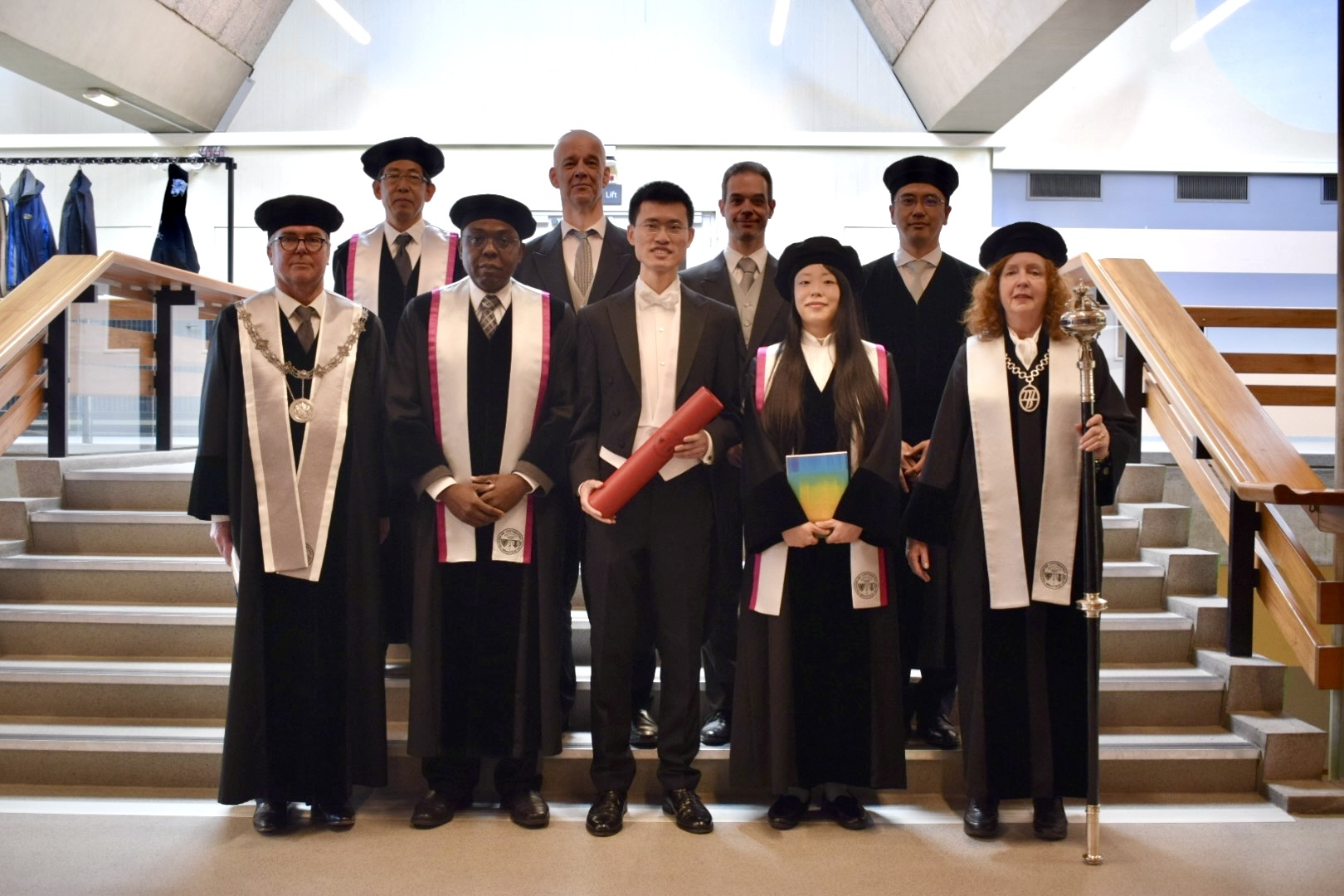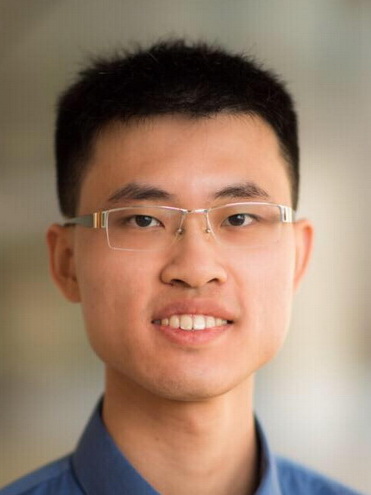News
Cum Laude for PhD student Huajun Zhang
- Wednesday, 24 April 2024
On April 15 PhD student Huajun Zhang promoted Cum Laude.
Full story ...

On April 15 PhD student Huajun Zhang (EI group) promoted Cum Laude.
High-performance multilevel Class-D audio amplifiers.
Abstract: Despite their high power efficiency, Class-D amplifiers (CDAs) suffer from greater EMI, inferior linearity, and lower DR than Class-AB amplifiers. This thesis describes the design and implementation of CDAs that aim to approach the performance of Class-AB amplifiers in terms of their application cost, dynamic range, and linearity while retaining the characteristic high power efficiency of the CDA, through the use of a multilevel output stage, feedback after the LC filter, and capacitive feedback. Measurement results from prototypes showed state-of-the-art performance.
Promotor; Prof. dr. Kofi Makinwa, co-promotor: Dr,Qinwen Fan
Biography Huajun Zhang
Huajun Zhang was born in Beijing, China. He obtained the B.E. degree in Electrical and Computer Engineering from Shanghai Jiao Tong University in 2015 and the B.S.E. and M.S. degrees in Electrical Engineering from the University of Michigan, Ann Arbor in 2015 and 2017, respectively. In the summer of 2016, he was an analog/mixed-signal design intern at Analog Devices, Inc., Wilmington, MA, USA. From May 2017 to February 2019, he was a Mixed Signal Design Engineer with Analog Devices, Inc., Norwood, MA, USA. Mr. Zhang joins the Electronic Instrumentation Laboratory at TU Delft in March 2019 where he is pursuing the Ph.D. degree in Microelectronics. His technical interests include precision analog circuits and data converters.
Mr. Zhang has published three peer-reviewed journal papers on SAR and sigma-delta converters and has one US patent pending. He has been a reviewer for IEEE Transactions on Circuits and Systems I: Regular Papers and IEEE Sensors Journal.
